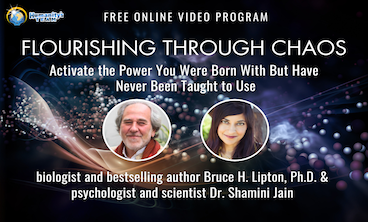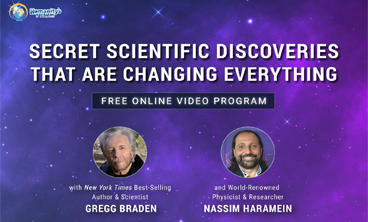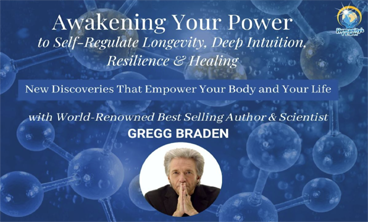Conscious Living- Living in Harmony with Yourself and the World
Conscious Living: Living in Harmony with Yourself and the World
At Humanity's Team, we believe that living a conscious life is not just a personal choice, but a responsibility to ourselves, to others, and to the world we live in. Conscious living is about cultivating awareness, mindfulness, and a deep sense of interconnectedness with everything around us. It is about recognizing our impact on the world and making intentional choices that reflect our values and beliefs.
In this article, we will explore the principles of
conscious living and how they can help us lead more fulfilling, purposeful lives.
Awareness
The first principle of conscious living is awareness. This means being fully present in the moment and noticing what is happening within and around us. When we are aware, we are able to observe our thoughts, emotions, and sensations without judgment. We become more attuned to our inner world and the world outside of us.
Awareness is the foundation of all other principles of conscious living. Without awareness, we cannot make conscious choices or act in alignment with our values. We may find ourselves reacting to situations without considering the consequences, or living on autopilot without questioning our habits and behaviors.
By cultivating awareness, we can break free from these patterns and live with intention and purpose. We can begin to notice the beauty and wonder in the world around us, and appreciate the simple pleasures of life.
Mindfulness
Mindfulness is the practice of being present in the moment with curiosity, openness, and acceptance. It involves bringing our full attention to our thoughts, feelings, and physical sensations, without getting caught up in them. Mindfulness helps us to cultivate inner peace, reduce stress, and improve our overall well-being.
When we practice mindfulness, we become more aware of our thoughts and feelings, and we can begin to observe them with detachment. We are less likely to be carried away by negative emotions, and more able to respond to situations with clarity and calm.
Mindfulness also helps us to connect more deeply with others. When we are fully present in our interactions, we are more empathetic and compassionate. We are able to listen more deeply, and respond with greater understanding and kindness.
Gratitude
Gratitude is the practice of appreciating the good in our lives, and acknowledging the blessings that surround us. When we cultivate gratitude, we shift our focus from what we lack to what we have. We begin to notice the beauty and abundance in our lives, and we feel more content and fulfilled.
Gratitude is a powerful antidote to negative emotions such as anger, resentment, and envy. It helps us to cultivate a positive mindset, and to see the world in a more optimistic light. By expressing gratitude, we also deepen our connections with others, and strengthen our relationships.
Compassion
Compassion is the practice of extending kindness and understanding to ourselves and others. It involves recognizing the suffering and struggles of others and responding with empathy and care.
Compassion is a fundamental principle of conscious living because it acknowledges our interconnectedness with all living beings. When we cultivate compassion, we break down the walls of separation that divide us and foster a sense of unity and solidarity.
Compassion also helps us to cultivate inner peace and happiness. When we extend kindness and care to others, we experience a sense of joy and fulfillment that comes from making a positive difference in the world.
Conscious Consumption
Conscious consumption is the practice of making intentional choices about what we buy, eat, and use. It involves considering the impact of our choices on the environment, our health, and the well-being of others.
Conscious consumption is an essential principle of conscious living because it reflects our values and beliefs. It acknowledges our responsibility to the world we live in, and our role in creating a more sustainable and just world for future generations.
Conscious consumption involves being mindful of the products we buy, the food we eat, and the resources we use. We can make choices that support fair trade, sustainability, and ethical practices. We can reduce our consumption of meat and animal products, choose renewable energy sources, and recycle and compost our waste.
By making conscious choices about what we consume, we can reduce our impact on the environment, promote social justice, and improve our health and well-being.
Connection
The final principle of conscious living is connection. Connection involves recognizing our interconnectedness with all living beings, and cultivating deep, meaningful relationships with others.
When we live in isolation or separation, we miss out on the richness and diversity of human experience. Connection allows us to share our joys, sorrows, hopes, and dreams with others, and to feel a sense of belonging and community.
Connection also helps us to cultivate empathy and compassion for others. When we are in relationship with others, we are more likely to recognize their humanity and to respond with kindness and care.
Living a Conscious Life
Living a
conscious life is not always easy. It requires a commitment to self-awareness, mindfulness, and personal growth. It requires us to question our assumptions, examine our beliefs, and make intentional choices that reflect our values.
But living a conscious life is also deeply fulfilling and rewarding. It allows us to live with purpose and meaning, and to contribute to a better world. It helps us to cultivate inner peace, happiness, and well-being, and to connect more deeply with others.
At Humanity's Team, we believe that conscious living is not just a personal choice, but a
global responsibility. By living consciously, we can create a world that is more compassionate, just, and sustainable for all living beings.
We invite you to
join us on this journey, and to embrace the principles of conscious living in your own life. Together, we can create a world that reflects our highest values and aspirations, and that honors the interconnectedness of all living beings.
Share this post!
LATEST BLOGS
FREE PROGRAMS
LISTEN TO ONE OF OUR RECENT PODCASTS
Sign up now so you never miss a blog post, podcast,
or free event with Humanity's Team!

























